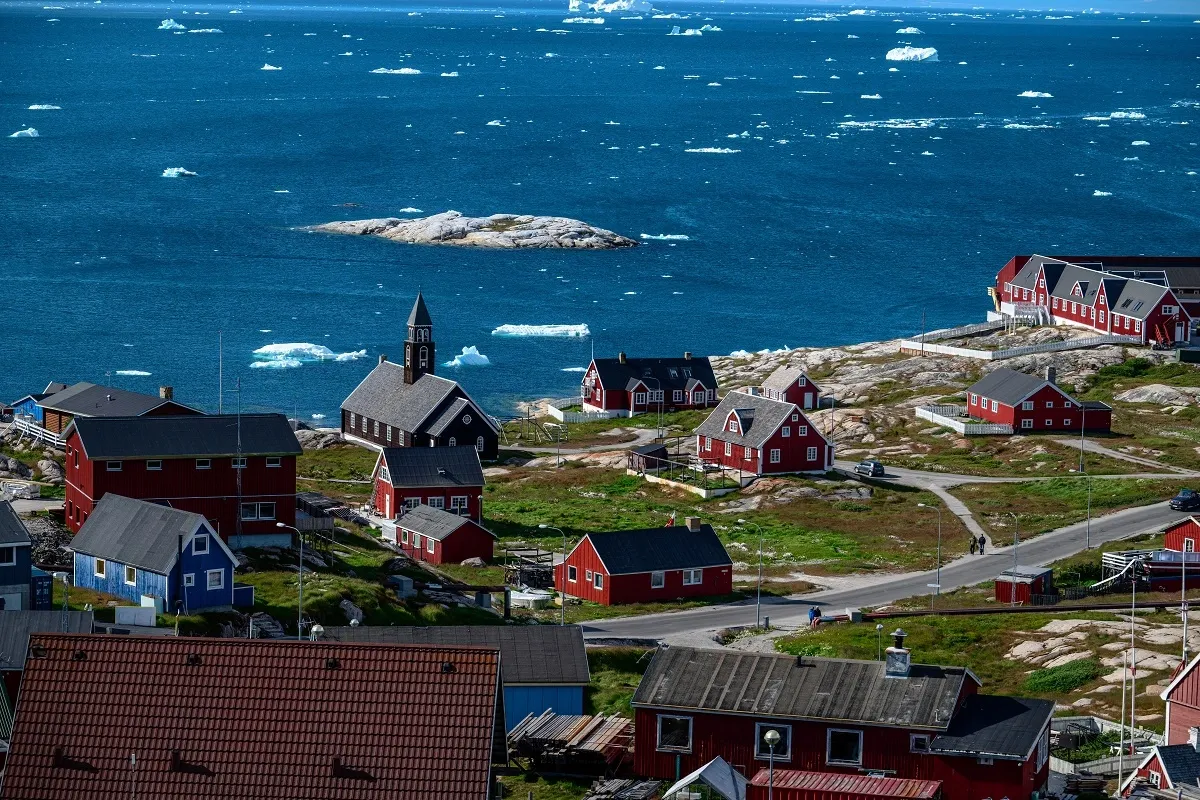Business News
Explained: Donald Trump’s renewed push to buy Greenland and why the island matters
.png)
5 min read | Updated on January 09, 2025, 17:11 IST
SUMMARY
The proposal to purchase Greenland has raised concerns about the island’s autonomy, environmental stakes, and the escalating Arctic competition between global powers like Russia and China.

Greenland's strategic location, rich resources, and environmental significance make it a critical geopolitical asset.
US President-elect Donald Trump's fresh proposal to purchase Greenland, the world’s largest island and an autonomous territory of Denmark, has renewed geopolitical concerns. During his first term, Trump’s suggestion to buy Greenland was met with ridicule and outright rejection by Danish and Greenlandic officials, leading to the cancellation of a planned state visit to Denmark.
This time, Trump has framed the acquisition as a matter of “national security and freedom throughout the world,” sparking fresh controversy as he prepares to assume office on January 20.
In a statement last month, Trump asserted that “the ownership and control of Greenland is an absolute necessity” for US security. He has even refused to rule out the use of military force to secure control over Greenland.
Situated between the Atlantic and Arctic Oceans, Greenland’s location has long made it a geopolitical prize.
The island serves as a gateway to the Arctic, a region gaining increasing attention as melting ice opens new shipping routes and exposes vast reserves of untapped resources. These resources include rare earth minerals critical for telecommunications and renewable energy technologies, as well as oil and natural gas deposits that were previously inaccessible due to the island’s thick ice cover.
Greenland also hosts a US space force base, Thule Air Base, on its northwest coast. The base provides a strategic vantage point for monitoring the Arctic and serves as part of the US ballistic missile early warning system. As Russia and China ramp up their activities in the region, Greenland’s value to US defence strategy has only grown.
Greenland’s ice sheet, which covers approximately 80% of its surface, acts as a thermostat for the planet by reflecting sunlight and regulating weather patterns. However, Greenland’s ice is melting at an alarming rate, contributing to rising sea levels and potentially altering ocean currents like the Atlantic Meridional Overturning Circulation (AMOC). The influx of freshwater from melting ice is slowing this crucial ocean current, triggering fears of a potential collapse.
Greenland’s melting ice sheet holds enough water to raise global sea levels by 24 feet. Since 1992, the island has lost an average of 182 billion tons of ice per year, with losses accelerating to 489 billion tons annually in 2019. This ice loss is already contributing to rising seas and could exacerbate extreme weather events worldwide.
As Greenland’s ice melts, it also changes the island’s colour from reflective white to absorbent blue and green, accelerating warming in a feedback loop.
The renewed US interest in Greenland has been met with a firm rebuttal from both Denmark and Greenland. Danish Prime Minister Mette Frederiksen’s office asserted that Greenland is “not for sale. Greenland’s head of government, Múte Bourup Egede, dismissed Trump’s proposal as meaningless, saying, “Greenland is ours. We are not for sale and will never be for sale.”
Greenland has maintained autonomy since gaining home rule from Denmark in 1979. While the island’s government has expressed aspirations for full independence, leaders have made it clear that joining the United States is not part of their vision.
An election for Greenland’s parliament, scheduled no later than April 6, will likely bring the independence debate to the forefront.
Public reactions in Greenland to Trump’s proposal have been mixed. Some residents see the idea as a threat to their culture and autonomy, fearing that integration into the US could erode their language and traditions.
“We are so few inhabitants, under 100,000, that I fear that our language would disappear very quickly, so I (would) prefer to stay under Denmark because the relationship between Greenlanders and Danes works well as it is,” a resident told Greenland’s public broadcaster Kalaallit Nunaata Radioa (KNR), according to CNN.
Others, frustrated by high living costs and limited economic opportunities under Danish governance, have expressed openness to change.
“Goods from Denmark are extremely expensive, so of course the USA seems more attractive,” a resident named Karen Kielsen reportedly said.
A student, Imaakka Boassen, expressed distrust in Danish leadership, suggesting they might have more faith in Trump’s promises. However, concerns about the potential exploitation of Greenland’s resources, including uranium and rare earth minerals, have tempered support for US involvement.
Trump’s proposal to buy Greenland comes amid intensifying competition in the Arctic. Russia has expanded its military presence in the region, and China has declared itself a “near-Arctic” state, investing heavily in Arctic infrastructure and seeking access to resources.
A key concern is Greenland’s potential independence from Denmark. While independence could offer Greenland greater control over its resources, it could also make the island more vulnerable to influence from Russia and China.
By framing Greenland as vital to national security, Trump has brought the Arctic into sharper focus as a theatre of geopolitical competition. While the likelihood of the US acquiring Greenland remains slim, Trump’s fresh proposal has highlighted the island’s strategic and environmental importance. As the Arctic continues to warm, nations will increasingly vie for access to its shipping routes and resources and Greenland’s future will have far-reaching implications for security, climate, and international relations.
By signing up you agree to Upstox’s Terms & Conditions
About The Author
Next Story

